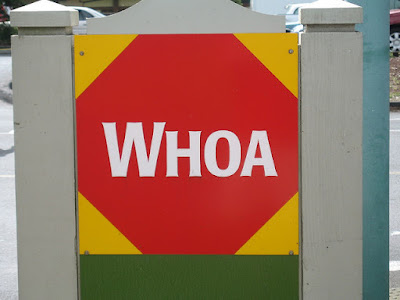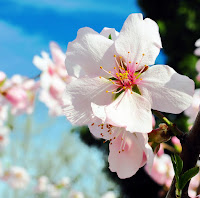This story written by Malati Marlene Shinazy
It’s still snowing somewhere in the United States. It’s still dark in Finland. In Northern California, however it is Spring.
Natives of Northern California understand that we have two major seasons: The Rainy Season and the Dry Season.
The Rainy Season is divided into
· Winter (super cold, windy, and torrential rain), and
· Spring (less cold, sometimes windy, sometimes balmy, and sometimes rainy)
It begins to feel like The Dry Season sometime between April and May, depending on how long the rain sticks around.
This year, we skipped the Winter half of the Rainy Season and went right into a California Spring… For me, this is the most glorious time of year. It’s the time when life is reborn, and all senses are refreshed.
When I lived in the Sierra Foothills, pastures were filled with offspring calves, born in November, bouncing around and through the winter-worn fences before the ranchers could repair them. “Cow on the road,” was the most common police call. On our way to work, we knew to slow around turns because those calves were very likely on their way to – well, nowhere, really; they were just enjoying themselves.
The cows that didn’t calf in November were gathered together in multiple acre maternity pastures, so wranglers could check on them every few hours. I once watched for an hour-and-a-half while a cow birthed her calf, then licked it repeatedly until it was able to stand on spindly legs. What a joy.
Calves are born in the Spring … But frogs are reborn! Almost overnight, a cacophony of frog-song emerges from every pond, lake, stream and riverbed. They too travel through, or rather under, fences, and can often be found on doorsteps or in back yards. Some species grow so big, so fast, that the Sierra Nevada town of Angels Camp has annual frog jumping contests. Mark Twain’s short story, "The Celebrated Jumping Frog of Calaveras County” was inspired by these events.
My daily spring descent from rangeland, calves and frogs into California’s Central Valley always left me in awe. As I’d come off the hills, in front of me was a sea of blooming almond trees. For about 1-1/2 weeks, I was treated to the sweet aroma of almond blossoms, orchards spread ahead as far as I could see in any direction.
As the hills turn almost chartreuse green and the valleys pink and white, closer to the coast, mustard volunteers sprout up in every untended field. These meadows of bright golden flowers are nearly blinding. But they provide one of my most pleasurable memories of California Spring:
Walking to the center of a field with my young son. When we found just the right spot, we’d bask in the still cool sunlight, chewing on slightly spicy mustard stocks until we were revitalized.
Year after year, California Spring renews my spirit.
photo by mfortini & snopek










